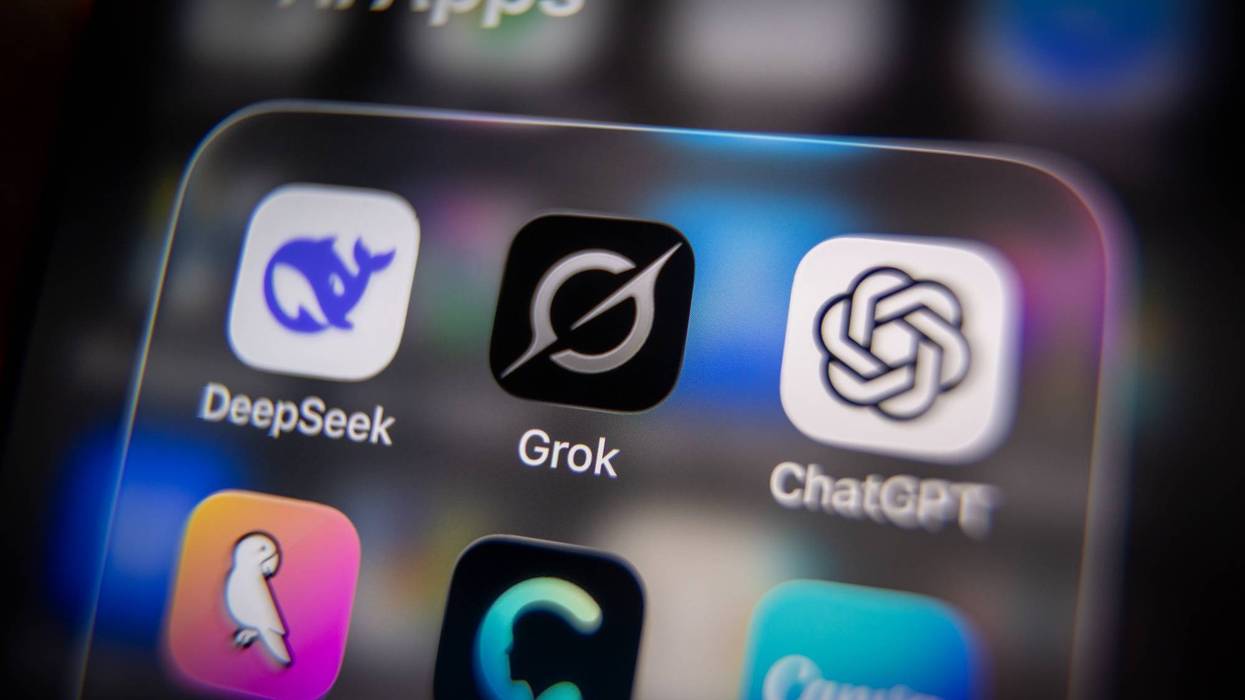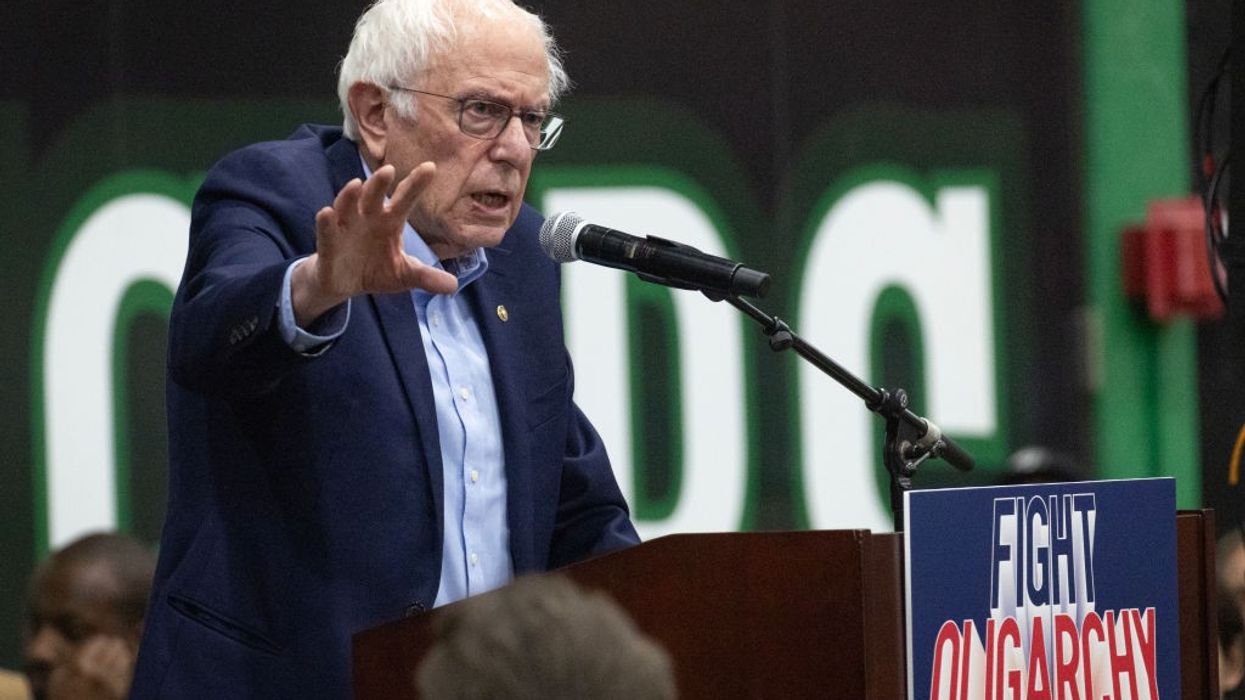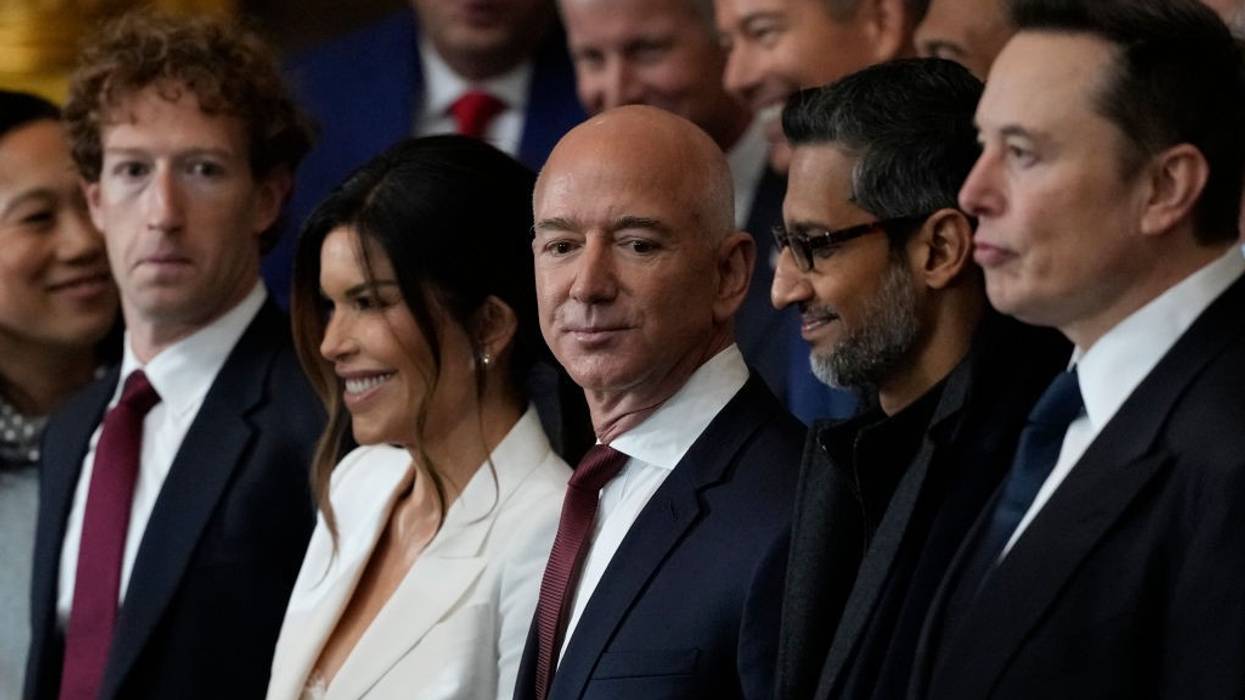Will Democrats Finally Get Real About AI?
If Democrats want to regain trust ahead of the 2026 elections, they need to show they are willing to take on Big Tech with the urgency that everyday Americans are demanding.
One year ago, Mark Zuckerberg, Elon Musk, and Jeff Bezos got front-row seats at President Donald Trump’s inauguration. The images of CEOs enjoying better seats than congressional leaders foreshadowed exactly how much access and influence Big Tech would wield in the Trump White House.
Since entering office, Trump has repeatedly signaled deference to a small group of powerful technology executives, aided by advisors like AI czar David Sacks who have spent their careers profiting from the industry. With Trump’s blessing, companies like NVIDIA are now poised to profit from sales of advanced chips to China, America’s foremost strategic competitor. That choice exposes a fundamental contradiction at the heart of the administration’s AI policy: prioritizing short-term corporate gains over long-term public interests.
In December, Trump signed an executive order threatening states for enacting AI safety laws without offering a credible federal framework to replace them. It was yet another misuse of executive power—and an industry giveaway disguised as a competitiveness strategy. By threatening states for acting while offering no federal safeguards in return, the order attempts to clear the field for companies that have spent years lobbying against meaningful accountability.
While Republicans move to shield companies from accountability and block reasonable state action without offering meaningful protections, Democrats can articulate a smarter approach.
Supporters argue that preemption is necessary to help the United States compete with China. But if that’s true, why is the president offering the Chinese Communist Party access to superior American technology and a clear path to win the AI race?
That contradiction hasn’t gone unnoticed, even inside Trump’s own coalition. Indeed, most Americans continue to express deep concern about Trump’s growing alignment with Silicon Valley.
Still, Trump has only doubled down, pushing a vision of global “tech dominance” with little regard for the real-world consequences of unprecedented AI investment. Even Republicans who were once vocal critics of Big Tech are now taking money from Meta and other companies to accelerate AI on industry-friendly terms.
For Democrats, this should be a moment of clarity—and a moment to lead. While many lawmakers have raised legitimate concerns about AI’s risks, the party’s response has too often leaned on commissions, task forces, and studies when the public is asking for clear rules and accountability.
Democrats must ask themselves: if Big Tech is already working overtime to block meaningful safeguards, why not meet the moment by standing clearly on the side of consumers, parents, and workers? Voters are asking for real leadership, but all they are seeing is a familiar pattern: billion-dollar companies consolidating power, writing the rules, and dodging accountability, leaving children, workers, and democratic institutions to deal with the consequences.
The 2024 election underscored a deeper challenge for Democrats than economic uncertainty or flawed candidates. Many voters struggled to see a coherent vision for the future under Democratic leadership. That vacuum has allowed Republicans to posture as pro-consumer and pro-family while quietly shielding powerful companies from accountability.
The debate over AI offers Democrats a chance to do better. While Republicans move to shield companies from accountability and block reasonable state action without offering meaningful protections, Democrats can articulate a smarter approach: clear expectations for safety; real liability when technology causes harm; serious preparation for economic disruption; and responsible planning for AI’s massive energy demands.
AI is no longer an abstract idea; its impacts are already being felt. But without clear rules, it risks reshaping our economy, labor markets, and democratic institutions in ways that undermine security, opportunity, and trust. When elected leaders prioritize the agendas of their corporate executives over the long-term public interest, trust erodes—not just in institutions, but in innovation itself.
That erosion of trust is already visible. Workers worry about job displacement, recent graduates struggle to enter a rapidly-changing workforce, and parents fear how algorithmic manipulation and AI-generated deepfakes will shape their children’s reality. These concerns aren’t partisan. This shared national anxiety goes to the heart of the American experiment.
If Democrats want to regain trust ahead of the 2026 elections, they need to show they are willing to take on Big Tech with the urgency that everyday Americans are demanding. That means recognizing that AI isn’t just another talking point, and pursuing strong, enforceable standards now—so its extraordinary potential strengthens the middle class, improves our children’s future, and reinforces democratic institutions rather than undermining them.


